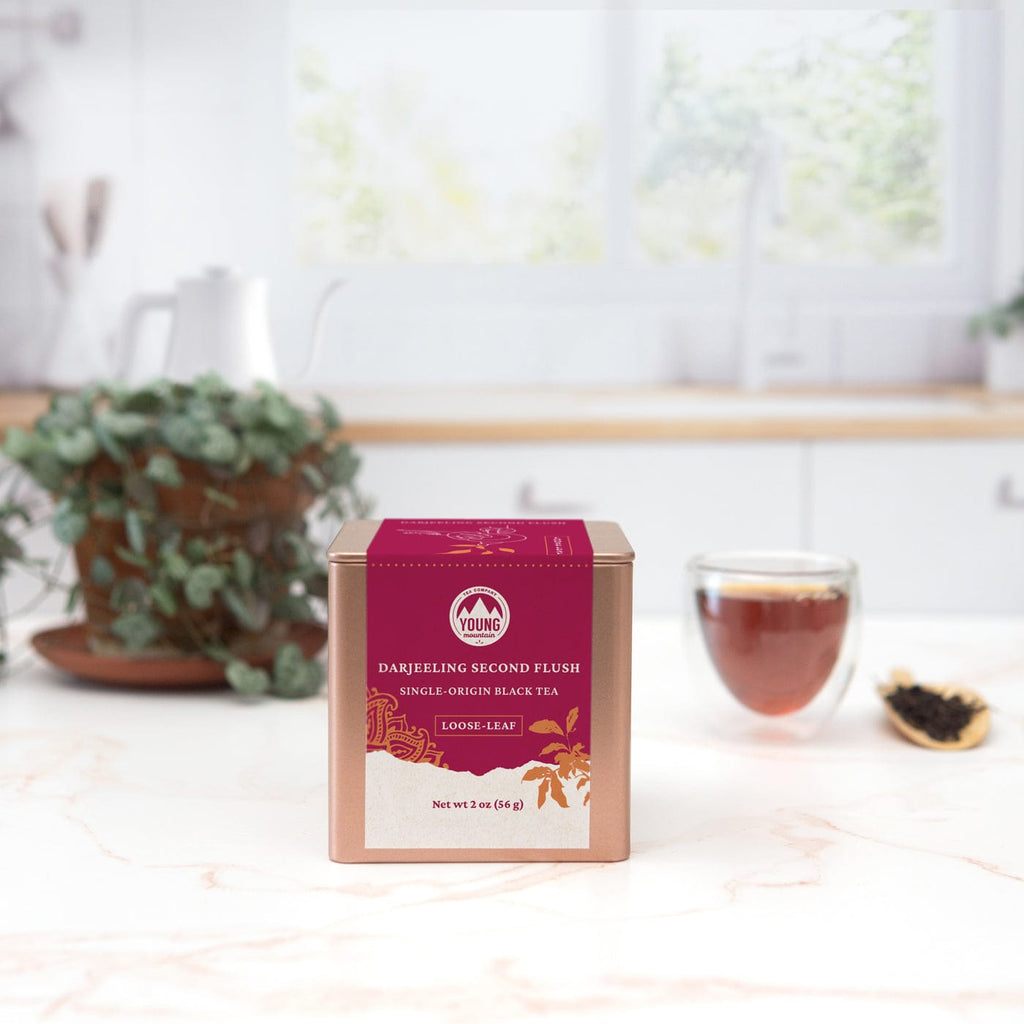
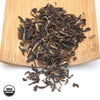
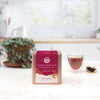
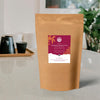
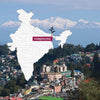
$27.99
Taste: Cacao nib & lemon peel
Origin: Darjeeling, Northeastern Indian Himalayas
Tea Maker: Makaibari Estate
Infusion Suggestions:
Steep 1 0.5 Tbsp /2.5 g | 8 oz | 190° F | 3 min
Steep 2 8 oz | 195° F | 3.5 min
Certifications: USDA Organic, Biodynamic Certified
Contains Caffeine
Darjeeling Second Flush is a full-bodied, well rounded tea with both light notes of lemon and dark cacao. Ours is made by the tea makers at the legendary Makaibari Estate, the world’s first certified biodynamic tea garden.
Tasting Notes This tea brings a kaleidoscope of sweet, spicy, and citrus flavors into one cup. Stronger than the First Flush that precedes this tea in the annual harvest calendar, it strikes a unique balance of a light black tea with body, strength, and smoothness. The initial strong notes of raw, powerful cacao nibs give way to a pleasantly bright, tart lemon peel. The finish returns to sweetness, but with a spicy kick that evokes cinnamon. Darjeeling gained its worldwide reputation with this tea, prompted largely by German demand in the 1970s. Lovers of heavily roasted Taiwanese oolongs will likely enjoy this tea.
Production: Darjeeling Second Flush Tea is picked just before the monsoons in June. The leaf develops a full body as the plant’s growth furiously accelerates under the hottest sun of the year. The first rains then trigger an explosion of all forms of life--flora and fauna alike--and the rapidly growing tea plants attract a small green fly called a thrip. As the thrips bite the tea leaves, the plants fight back by producing a host of compounds that create wonders in the cup. The tea pluckers are at their busiest during this window. They return to the same bushes every seven days. Without this vigilant attention, the prized youngest leaves that make the best Darjeeling Second Flush teas will become mature and flavorless.
Region: Running along Nepal’s eastern border, the mountainous area of Darjeeling is a confluence of varied ecologies and cultures. The region’s sharp ascent from the plains of West Bengal into the towering Himalayas creates the ideal conditions for tea to flourish. As rain clouds heavy with water from the Bay of Bengal collide into the mountains, the tea bushes receive intense bursts of rainfall followed by strong, unfiltered sunlight. These heavy rains are actually what gives the region its name; “Darjeeling” means “Land of the Rolling Thunder” in Tibetan. Recognizing the potential for high elevation specialty teas, Darjeeling tea makers have focused on quality since they began crafting teas there in the 1850s and have built a tea tradition that fetches some of the highest prices in the world. Darjeeling is also a melting pot of South Asian ethnicities, home to Tibetans, Nepali, and Indians. Under colonialism, the mild mountain temperatures made Darjeeling a perfect retreat for British soldiers, which is why the town was originally built. Today, in the shadows of Mt. Everest and Mt. Kanchenjunga, the world’s third highest peak, Darjeeling remains a destination for tea lovers and trekkers alike. Read our blog about this region here.
Tea Makers: The Makaibari Estate has led the way in progressive ecological and social practices for decades. Under the leadership of Rajah Banerjee, Makaibari evolved from a famed tea garden into a center for agricultural innovation; in his tenure, the garden became the world’s first certified organic, first certified biodynamic, and first certified fair trade tea estate. The communities that live in the garden even own a small share of Makaibari. One such community member is Maya Devi, Darjeeling’s first female supervisor of tea pluckers. From her kitchen table, she proudly tells the story of her shattering through the glass ceiling. You can eat at her home as part of Darjeeling’s first homestay program where guests can stay with families of tea pluckers.
Impact: Through biodynamic and permaculture farming practices, the ecological diversity of Makaibari makes it one of the healthiest and most resilient tea gardens in Darjeeling. The abundance of plant and animal species create healthy soils, disease resistance in plants, and a stratified root structure that retains water and minimizes landslides. Makaibari has raised the sustainability bar for many other tea estates in Darjeeling and beyond.
Packaging: Our commitment to sustainability means we offer our teas in several types of packaging:
